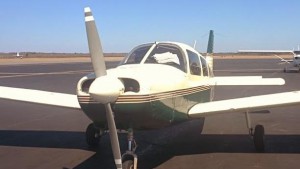Appeals Court Denies “Uber” for Planes
If you want to get from Dallas to Washington, D.C. fast, wouldn’t it be nice to contact a pilot in an Uber-like plane service? Well, keep dreaming. In December 2015, the U.S. Court of Appeals for the District of Columbia Circuit struck down the idea.
Flytenow, Inc. developed a web-based service allowing private pilots to offer their planned itineraries to passengers. The itineraries were only given to passengers willing to share in the pilot’s expenses to fly to their destination. The company contacted the Federal Aviation Administration, or FAA, regarding the legal interpretation of its compliance with the Federal Aviation Act of 1958 and other FFA regulations.
A dispute arose when the FFA concluded Flytenow’s pilots needed a commercial license. Normally, pilots are considered common carriers. A common carrier offers its services to the general public. The services are offered in compensation of goods, property or messages over a defined route. Typical types of common carriers include mass transit, such as airlines, taxis, cruises, and ferries.
This means private pilots can’t use Flytenow to offer their services.
Flytenow Wanted the Court to Set Aside the FAA’s Interpretations because of Inconsistency
The company filed a lawsuit based on objections like:
- The FFA misinterpreted its regulations when it decided passengers would be compensating the participating pilots
- The FFA erred when it concluded pilots using Flytenow.com would be holding out an offer transportation to the public
The Court found both objections unpersuasive.
By sharing expenses, private pilots are being compensated for their trips. If a person called a private cab service, the amount of gas is probably calculated into the amount paid to the driver. The same would have been true of Flytenow’s pilots. By getting paid a portion or half of their expenses, consumers would save money. Essentially, there’s an exchange of value.
Thus, they aren’t private pilots, but commercial pilots. 
Another problem with Flytenow’s argument is trying to redefine “holding out.” According to FAA Advisory Circular, pilots are barred from advertising their services to the public. The company tried to argue its’ pilots don’t advertise to the public. They submit their flight plans to the Flytenow.
However, the FFA argued that by giving their flight plans to the company, they are advertising their services to the public. For example, an individual wanting to fly to California from Missouri could look at a flight plan on the company’s website. He could then decide to “share” the expenses of the flight with a pilot flying to California.
The Right to Sue
The court got it right. The company holding itself out as a professional service to the public does create a risk to unsuspecting passengers when its pilots are not in fact held to professional standards. Passengers are under the impression the company and its pilots are common carriers. Common carriers have the experience and credential to fly commercially. If Flytenow and its pilots were allowed to present themselves as commercial and a plane crashes, passengers and/or their family would have difficulty suing under common carrier negligence.
Negligence is the failure to act with reasonable care as another in a similar or same situation would. When transporting passengers from one area to another, common carriers have the duty to:
- Provide reasonably safe vehicles fit for an intended purpose
- Provide careful drivers or pilot of reasonable skill and good habits
- Exercise all standard precautions for the safety of all passengers
- Comply with all safety laws
- Use vigilance and utmost care in transporting all passengers
- Warn passengers of any potential dangers the common carrier knows about
A private pilot doesn’t have to do those things. So making the pilots commercial instead of private gives passengers more legal protection.
Maybe the public won’t have to imagine an Uber-like plane service for very long. Maybe the right company will hire commercial pilots willing to fly planes to destinations for pay. For now though, we can only dream of avoiding the long waits at airline terminals and trying to book the best flight at the best price.


Comments